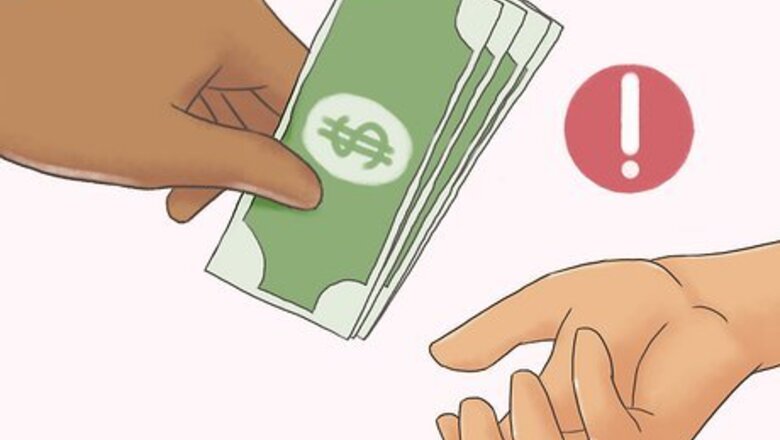
views
- Make a plan with your child so they take over more of their expenses and make a budget for themselves. Use the plan to phase out the amount of money you give them.
- Let them live with the consequences of their decisions in order to help them learn responsibility. Don't criticize them, and only give advice when they ask for it.
- Develop your own sense of self beyond being a parent. Find a source of meaning and happiness in your life that's separate from your children.
Setting Healthy Boundaries

Limit your financial support. Your life will always be tangled up in your child’s if they’re relying on you for money, rent, their phone bill, or shopping sprees. Decide what is appropriate for them to pay for themselves given their own age and financial situation. Tell your child that your goal is for them to pay for everything in their life, and then make a plan together to have them gradually take over more and more of their expenses. Sign a written agreement together about how you will support them (and for how long), as well as how you won’t. You can go from paying for all their costs yourself to giving them a monthly stipend that they budget out to pay their expenses. Then, gradually decrease their stipend so that they become more independent over time. If they always call you in emergencies needing money, use a response like “I’ll have to talk about it with your mother. We’ll get back to you later this week” to let them know that you’re not just a bank that can dispense money when they need it. Then, if it’s a recurring problem, let them know that you won’t be able to give them so much money next time.
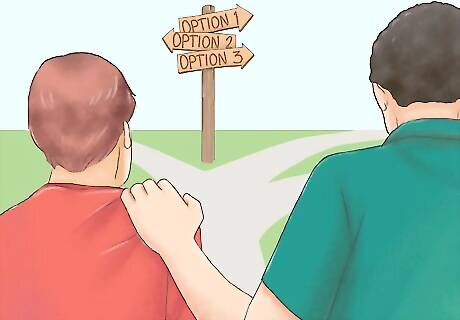
Support their independent decision-making. If you’re involved in every decision your child makes, they aren’t given the opportunity to develop their own life skills. Let them make choices on their own, and only give advice or help when they ask you for it. If they ask you for too much help, like a lot of money or for you to do things that they could do themselves, say no. Just because your child decides to do something you don’t like–disagreeing with your beliefs, going to a wild party, or dating someone you think is weird–doesn’t mean it’s a bad decision. It's excruciating to see them do something you think is wrong, but let them be them. Praise their good decisions. Positive reinforcement for independence and responsibility goes a long way.

Let them learn from their mistakes. It can be painful to see your child fail, but resist the urge to swoop in and fix everything for them with your wisdom and cash. Let them live with the consequences of their own decisions, even if it’s unfortunate. If their health or well-being is threatened, help them out. For example, if they’re evicted from where they live, it's fine to take them in temporarily, but if they regret picking an apartment without a washer, don’t do their laundry for them–have them go to a laundromat.

Develop your own sense of self apart from parenthood. Being a parent can be all-consuming, but once your child is an adult, work on detaching from your child by discovering your own hobbies and passions. Developing your own identity apart from being a parent will help you become independent from your relationship with your child and encourage them to do the same. Develop other friendships and relationships by volunteering at a soup kitchen, singing in a choir, or using the neighborhood garden. Invite your neighbors over for a dinner party without your children present. Reach out to old friends to reconnect over lunch. Find new hobbies by signing up for classes like art classes or music lessons. You can’t have a healthy life if your well-being depends on your relationship with your child. It might be scary to realize that you need to care less about your child and more about other things, but setting healthy boundaries is best for both you and your child in the long run.

Treat them like an equal. When they ask you to do something for them, think ‘Would I do this for my adult friend or neighbor?’ Reframe your relationship from that of a parent taking care of a child into one of two equals that love and respect each other. That means that you can totally help them out in an emergency, hang out together, and go on vacations, but try to avoid lending more and more money, calling the doctor’s office for them, or letting them yell at you. As you limit your involvement in your child’s life, strengthen your relationship in the same way that you would for a friend: go to dinner together, ask them about their hobbies and interests, do fun activities together like concerts or art classes, and listen to them.

Keep separate schedules. You’re both adults, so you don’t have to do everything together. There doesn’t need to be a designated dinner time or coordinated grocery runs. By each doing your own thing, you’ll both be more stable to interact with each other on even terms. Designate nights out when you do things without your child, whether that’s a date night, bowling night with your friends, or a weekend trip without them. That’ll show that you each are responsible for your own time, and they'll be encouraged to plan things for themselves, too.

Encourage them to move out. If they live at home and you feel like they’re taking advantage of your kindness, you can help them move on and move out. Encourage them to move out by suggesting they look at other apartments or houses they could live in. Set a deadline for them to find another place to live, and help them progress towards it. To transition them into independent housing, start by charging rent for them living at home. They’ll realize that they will have to pay rent no matter what, and might end up looking for a more fun and independent place for them to live. If your child has certain physical or mental health conditions, it might be hard for them to live completely independently. If you want to set firmer boundaries with them, consider an adult living home for your child where they can live on their own while still having the support they need.
Signs You Need Stronger Boundaries

You feel taken advantage of. If you feel like your good heart and love for your kids is being exploited, you probably need better boundaries with your adult children. With boundaries, your children will appreciate your love but not use it to monopolize your time and energy.
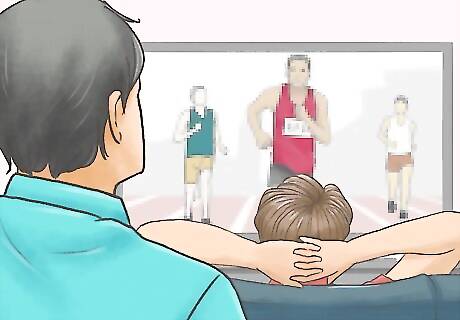
Their life is at a standstill. If your child is stuck on the couch at home, not applying for jobs or new housing, setting firmer boundaries will help them on the path to independence. It might seem like you need to get more involved in their lives to get them going, but sometimes what an adult child needs is clear boundaries that let them know that they need to get their act together.
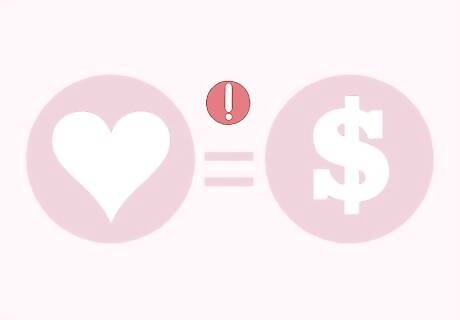
Their sense of love is conditional on your constant assistance. If you hear your child complaining, “If you don’t pay my rent you don’t really love me!” or “I won’t love you if you don’t let me stay in your house,” that’s a strong warning sign. Love should be based in respect and appreciation, not on over-the-top involvement in each others’ lives. On your side, you might find yourself thinking, “They don’t really love me if they don’t do what I think is best for them.” That’s another warning sign. Adult children show their love in different ways than young children: they will show love by demonstrating interest in your life, doing activities with you, and staying in contact.

You’re losing sleep worrying about them. Your relationship may be too close with your child if you can’t sleep because you’re thinking about their dating life or whether they’re going to get that promotion. Your constant worries are a sign that your happiness depends on theirs in an unhealthy way.

You’re constantly arguing with them about their life. If they resist your advice or you find yourself disagreeing with their decisions that result in a big blowup, you could probably use some more independence from each other. Fights often happen when a child is itching to get free of their parents’ constraints.

You’re financially and physically exhausted. If your child asks you to do so much that you have no free time or money for yourself, practice saying “no” more often. Explain to them that you’re feeling stretched thin yourself, so you can’t take care of everything for them. Make a written financial plan for you and your child that’s reasonable for your finances and energy and helps your child gain stability and transition to independence.
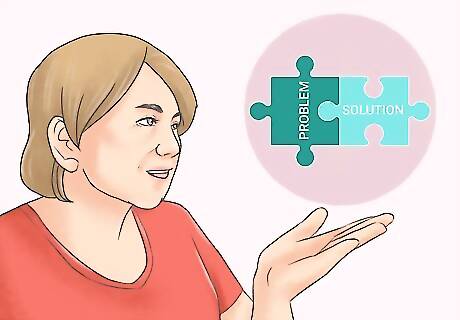
You’re more interested in solving their problems than they are. If you’re the one to always urge them to make friends, to tell them about fun activities they could do, or to notice which places in town are hiring, they need more independence to develop skills and desires of their own. By setting better boundaries, they can be motivated to develop themselves rather than being satisfied with doing what they’re told.
When It’s Okay to Help Adult Children
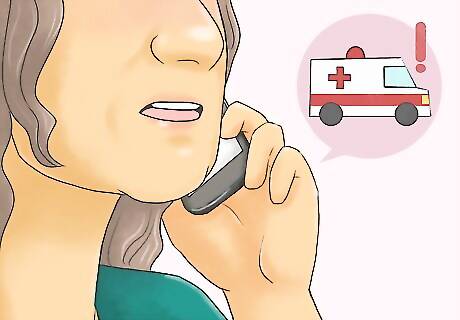
It’s an emergency. It's important to never be so set on your child being independent that you forget to be their parent when they really need you. For example, if your child’s life or mental health is at stake, help them. Most parents can and do step in to help their adult children during emergency situations and there's absolutely nothing wrong with that at all. For example, if your child calls you saying they’re out of money and don’t have a place to sleep that night, or if they’re in a bad place mentally and need to recover for a week, it's okay to help them. Be clear that this help isn’t for forever, though. Once you’ve helped them in that situation, remember to set up the structures and boundaries that will help them be more capable of handling their life going forward.
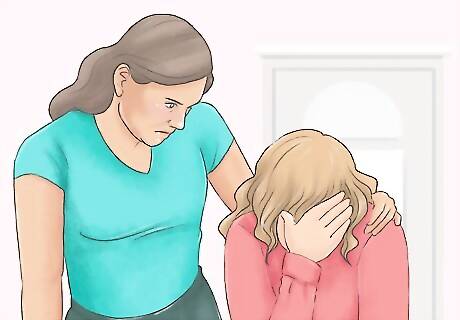
They show they’ll return to independence soon. If you know that your child cares about being independent but they need some help getting back on their feet after getting fired or suffering a loss, you can definitely help them. It’s only necessary to set boundaries when your child won’t take initiative (unless you force them to).

It’s something normal, small, or occasional. Children will always need their parents once in a while, whether that’s for advice, a supportive conversation, a warm dinner, or help in a relationship. It’s a normal pattern for adult children to go out independently into the world, and come back to their parents every once in a while for emotional support. The only problem comes when they go overboard and start to take advantage of you.
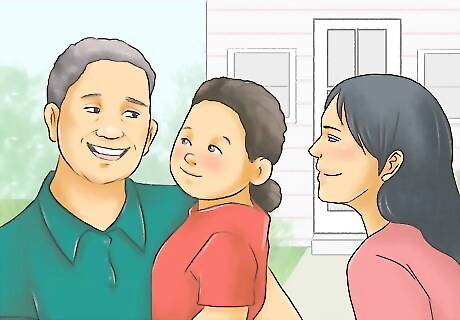
You need to help others involved, especially small children. If your adult child has children of their own, and you’re worried about their well-being, it may be more necessary to assist them. That way, you know that the vulnerable people in your adult child’s care are getting what they need. Ultimately, though, it is your child that needs to take responsibility for their own children, so helping them out isn’t a permanent solution.



















Comments
0 comment